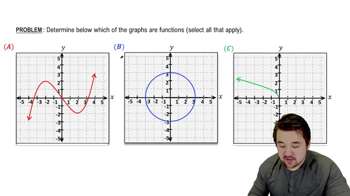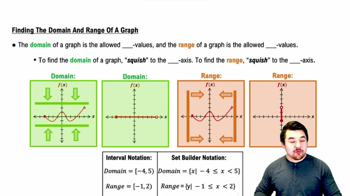Table of contents
- 0. Functions7h 52m
- Introduction to Functions16m
- Piecewise Functions10m
- Properties of Functions9m
- Common Functions1h 8m
- Transformations5m
- Combining Functions27m
- Exponent rules32m
- Exponential Functions28m
- Logarithmic Functions24m
- Properties of Logarithms34m
- Exponential & Logarithmic Equations35m
- Introduction to Trigonometric Functions38m
- Graphs of Trigonometric Functions44m
- Trigonometric Identities47m
- Inverse Trigonometric Functions48m
- 1. Limits and Continuity2h 2m
- 2. Intro to Derivatives1h 33m
- 3. Techniques of Differentiation3h 18m
- 4. Applications of Derivatives2h 38m
- 5. Graphical Applications of Derivatives6h 2m
- 6. Derivatives of Inverse, Exponential, & Logarithmic Functions2h 37m
- 7. Antiderivatives & Indefinite Integrals1h 26m
0. Functions
Introduction to Functions
Problem 112b
Textbook Question
Textbook QuestionDaylight function for 40 °N Verify that the function D(t)=2.8sin(3652π(t−81))+12 has the following properties, where t is measured in days and D is the number of hours between sunrise and sunset.
Its maximum and minimum values are 14.8 and 9.2, respectively, which occur approximately at and , respectively (corresponding to the solstices).
 Verified Solution
Verified SolutionThis video solution was recommended by our tutors as helpful for the problem above
Was this helpful?




